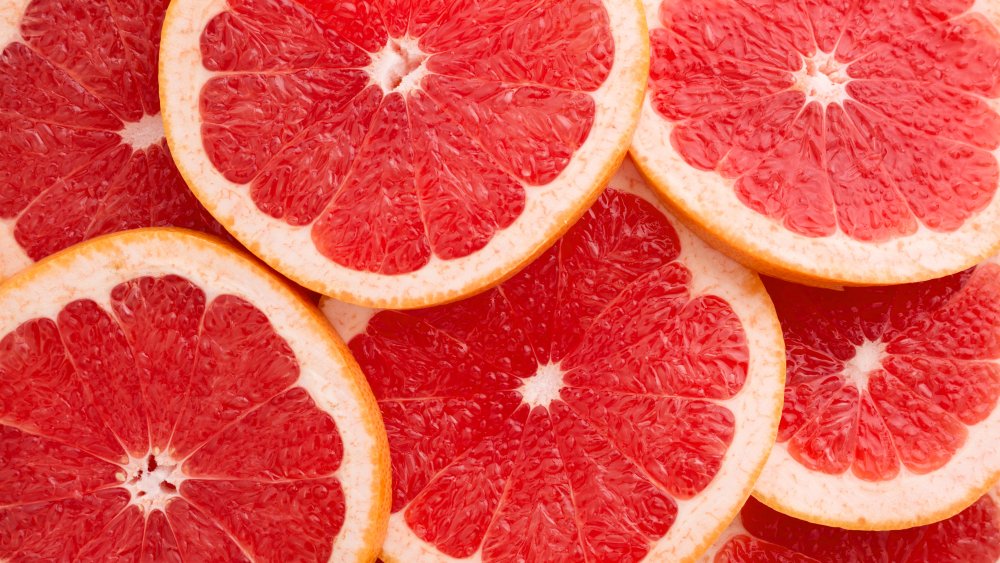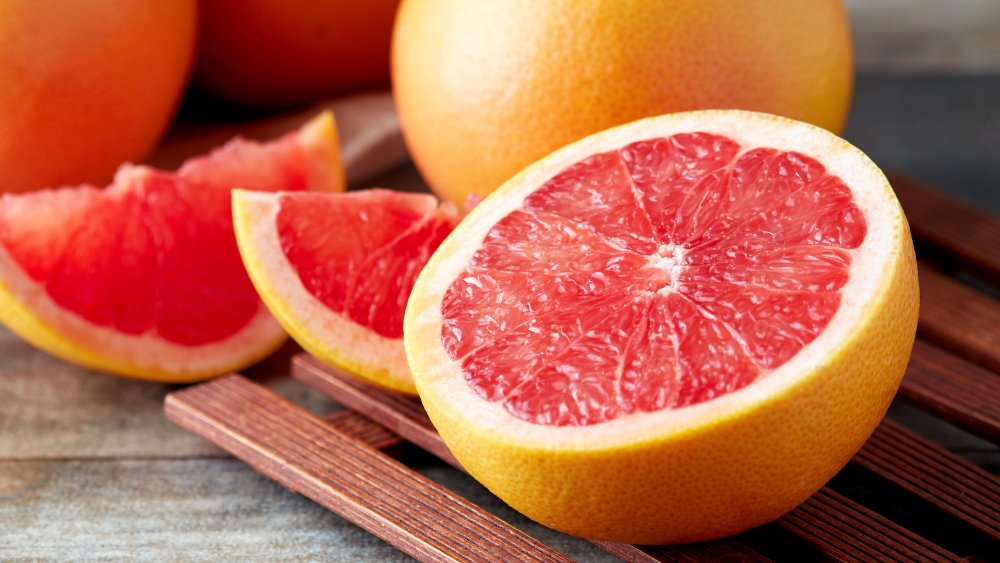Why You Should Think Twice Before Eating Grapefruit
If you are someone who loves the sweet and tart flavor of grapefruit, then you might believe the delicious fruit can do no wrong. It is, in fact, very healthy. Each serving of the citrus packs tons of vitamin C and A as well as potassium and antioxidants. Plus, each serving of 250 grams includes four grams of fiber and is only 82 calories (via US News and World Report). With seemingly nothing but benefits to eating the fruit, you might think a grapefruit diet is a healthy idea, but it can actually be quite dangerous.
One version of the grapefruit diet allows people to eat only 800 calories per day, according to WebMD, which certainly isn't enough to be sustainable. Those who have followed the diet have claimed to lose up to 10 pounds in less than two weeks, though that would likely just be water weight. Following the diet has led to people having weaker bones, feeling fatigued, losing muscle mass, and having a slower metabolism (via Healthline). If those negatives still do not outweigh the positives of the diet, there's more. Kelly Plowe, MS, RD, told Verywell Fit, "The diet's small portions and limited food options are not sustainable, and grapefruit has a high risk of interacting with many medications and conditions."
But let's say you don't want to live on grapefruit and hunger alone. Even if you don't go to extremes, the combination of the fruit and some medications could be dangerous.
Grapefruit can have adverse reactions with some medications
Grapefruit and grapefruit juice do not directly cause problems with the medication itself, but it causes issues with how the medication is absorbed. One of the chemicals in grapefruit clings to an enzyme in the intestinal tract. This enzyme usually reduces the absorption of some medications. So when the enzyme is blocked, it is easier for the medication to be absorbed into the bloodstream (via Harvard Health Publishing). This causes blood levels to rise faster and higher than usual, which can be quite dangerous in some cases. For this to happen, you only have to have the equivalent of a single glass of grapefruit juice. That amount can cause a 47 percent reduction of the enzyme that regulates the absorption. The juice causes a long-lasting effect that can remain even a day later, too.
Not all medications are affected by grapefruit and grapefruit juice, but those that are can come with serious consequences. Drugs that are affected include some blood pressure medicines and blood thinners as well as mood, pain, anti-infection, cholesterol, and heart rhythm medications (via Healthline). Some erectile dysfunction medications like Viagra may also be impacted. But men shouldn't get too excited. The side effects include low blood pressure, headaches, and flushing.

